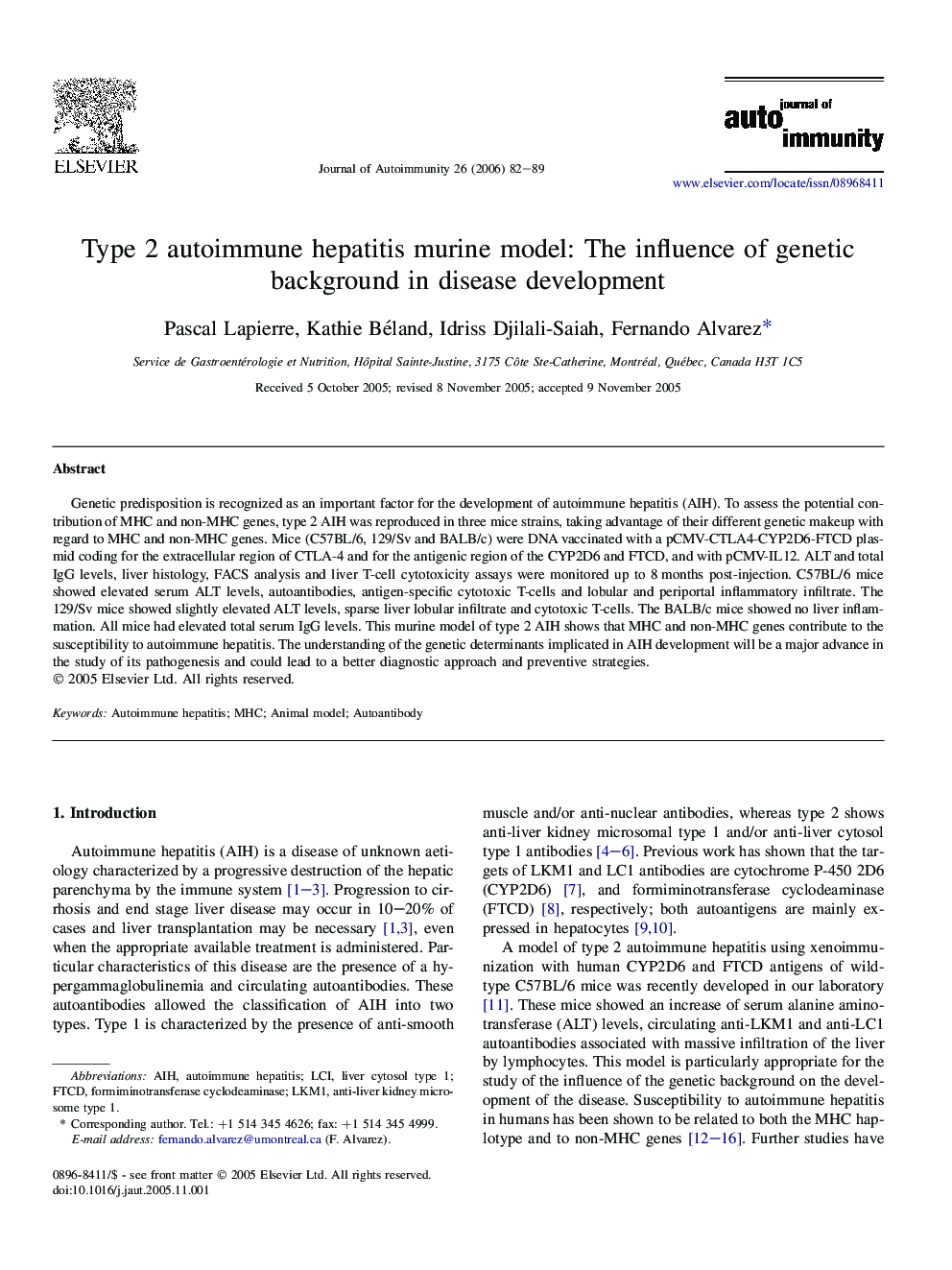| Article ID | Journal | Published Year | Pages | File Type |
|---|---|---|---|---|
| 3368590 | Journal of Autoimmunity | 2006 | 8 Pages |
Genetic predisposition is recognized as an important factor for the development of autoimmune hepatitis (AIH). To assess the potential contribution of MHC and non-MHC genes, type 2 AIH was reproduced in three mice strains, taking advantage of their different genetic makeup with regard to MHC and non-MHC genes. Mice (C57BL/6, 129/Sv and BALB/c) were DNA vaccinated with a pCMV-CTLA4-CYP2D6-FTCD plasmid coding for the extracellular region of CTLA-4 and for the antigenic region of the CYP2D6 and FTCD, and with pCMV-IL12. ALT and total IgG levels, liver histology, FACS analysis and liver T-cell cytotoxicity assays were monitored up to 8 months post-injection. C57BL/6 mice showed elevated serum ALT levels, autoantibodies, antigen-specific cytotoxic T-cells and lobular and periportal inflammatory infiltrate. The 129/Sv mice showed slightly elevated ALT levels, sparse liver lobular infiltrate and cytotoxic T-cells. The BALB/c mice showed no liver inflammation. All mice had elevated total serum IgG levels. This murine model of type 2 AIH shows that MHC and non-MHC genes contribute to the susceptibility to autoimmune hepatitis. The understanding of the genetic determinants implicated in AIH development will be a major advance in the study of its pathogenesis and could lead to a better diagnostic approach and preventive strategies.
